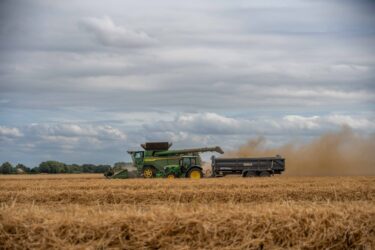Considerations for succession planning

Succession planning is a key topic in farming businesses, especially in light of announcements in the Autumn Budget. With most farmers generally being described as “asset rich but cash poor,” it has become crucial to look at succession planning to reduce Inheritance Tax (IHT) and ensure the smooth transition of the business to the next generation.
The first step in effective succession planning is to assess the long-term goals of the business and gain a clear understanding of the estate’s contents and values, this helps in calculating the current exposure to IHT prior to making changes. Once this is understood, a strategy can be developed to align with future objectives while also minimising the tax impact.
The last thing farmers want to do is sell land to cover their tax liability. Selling land could further increase the issue surrounding the high machinery costs which are currently mitigated by spreading these costs over the land mass. Selling land to cover an IHT bill not only likely triggers a Capital Gains Tax (CGT) liability, further reducing the cash available, but could also undermine the business’s viability. It’s essential to consider available reliefs to help mitigate this issue.
Holdover Relief, which wasn’t axed in the Budget, remains a vital tool for passing assets to the next generation. While the CGT benefits of lifetime transfers are attractive, the base cost of the assets should be carefully reviewed. Whilst lifetime gifts potentially reduce the IHT bill, they remove the benefit of capital uplift upon death, meaning both IHT and CGT must be considered in conjunction when making decisions.
An important aspect of succession planning is understanding what income the older generation will need. For a gift to be effective for IHT mitigation, the donor must not benefit from the asset once given away. This adds complexity to decisions regarding which assets to transfer and the timing of these gifts.
Finally, while tax changes are inevitable it is impossible to predict the possible future changes in policy. The tax should therefore not drive the overall direction of succession planning instead, thoughtful planning in line with business goals is key to ensuring the continued success of the farm for future generations. This is a complex area and discussions with an accountant or tax advisor at the earliest opportunity, if not already done, is highly important.
The information contained within this publication is given by way of general guidance. Specialist advice should always be sought in relation to your particular circumstances. No liability is accepted by Ensors for any actions taken without seeking appropriate professional advice.

